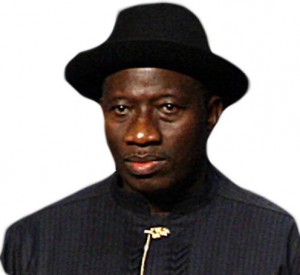It was about 10.00am Wednesday last week that a friend reminded me that Mr. President was before a joint session of the National Assembly outlining his administration’s tax and spending provisions for next year. My initial response was censorious. How could I have missed that. Time was when the budget speech, the New Year and Independence Day addresses were anticipated and much trawled thereafter. One actually woke up early to hear them out. These speeches used to lay road maps down, along which the respective administrations invited the citizenry to come. By the mid-1980s, though, they had become more beautiful than useful. Institutions whose purpose was not so much the definition of a desired pathway; but rituals, rites of governance, whose very existence now lent a crumbling state the pretence of coherence and purpose.
The Ibrahim Babangida administration, a bellwether of those trends that have come to define this nation was as usual at the centre of this transition – there will, of course be those who argue that it was, indeed, the catalyst for this change. Arguably, the elevated language, and the carefully worded arguments that under-girded most of its initiatives contributed to the beautification of the speeches from the throne. By the mid-1990s, however, not just had these institutions of governance lost their purpose. They had ceased either to be beautiful by themselves, or to lend beauty to the apparatus of governance. A new quality, consensus opinion eventually defined it as “rank impunity”, now infused the public space.
Since government has become an authority by and unto itself (immune even to counsel from its enlarged cortege of advisers) is it any surprise that targets are apparently set in order to be missed? Today, the budget, at whatever level of governance, is an act of fiction. I do not speak here to the relevance of the many targets it contains to the lives of the electorate for whom it is intended. After innumerable iterations at the different levels of governance every year, there is no doubt any longer that the dissonance between budgets and the people’s needs is cavernous. From their fancy rubrics – “Budget of Progress”, “Budget of Consolidation”, etc. – the people have come to expect nothing of sorts. Beyond these loud shortcomings, our budgets fail, today, because even their fashioners expect very little of them. Governments now celebrate 50% attainment of the targets contained in their budgets as if this is the new pass mark. Against the huge shortages that the people have to contend with, of course, this new “normal” is nonsensical.
Against this background, what does it mean that the total appropriations for the next fiscal year (N4.93tn) is 5% up on the number for this year (N4.697tn), if the federal government did not meet, or exceeded the latter target? Maybe the proper question to ask at this point is: “what is a budget”? Definitely not a self-fulfilling pronouncement. Not even a guide. A statement of hope, then? The only reason for instance why the eventual budget deficit for 2012 might be within the initial 2.85% of GDP estimate, is that the price of our main export held up well throughout the year. Such was the nature of spending last year that lower oil prices would have doomed the economy. At US$33.6bn government’s domestic debt is intimidating. Add the foreign component, and total official indebtedness is close to 25% of GDP. Every day, therefore, the economy resembles Nigeria pre-Paris Club debt exit. At 14%, the coupon on the domestic debt should soon push this budget line into unsustainable territory.
In this light, the most useful background to the new hope of keeping the deficit for fiscal 2013 under 2.17% of GDP is that the federal government expects Iran’s cack-handed approach to diplomacy, Syria’s ineptitude, and an increasingly bellicose Israel to continue to put pressure on oil prices. Buoyed by such rose-tinted optimism, it is little surprise that the budget is based on an increase in oil production. Debate proceeds ad nauseum over how much effective installed capacity there is in the upstream sector of the oil industry. But few can deny that concerns over an enabling legislative environment has denied the industry of the needed investment in new capacity.
In other words? I need not have bothered too much about not listening to the president’s budget address.
